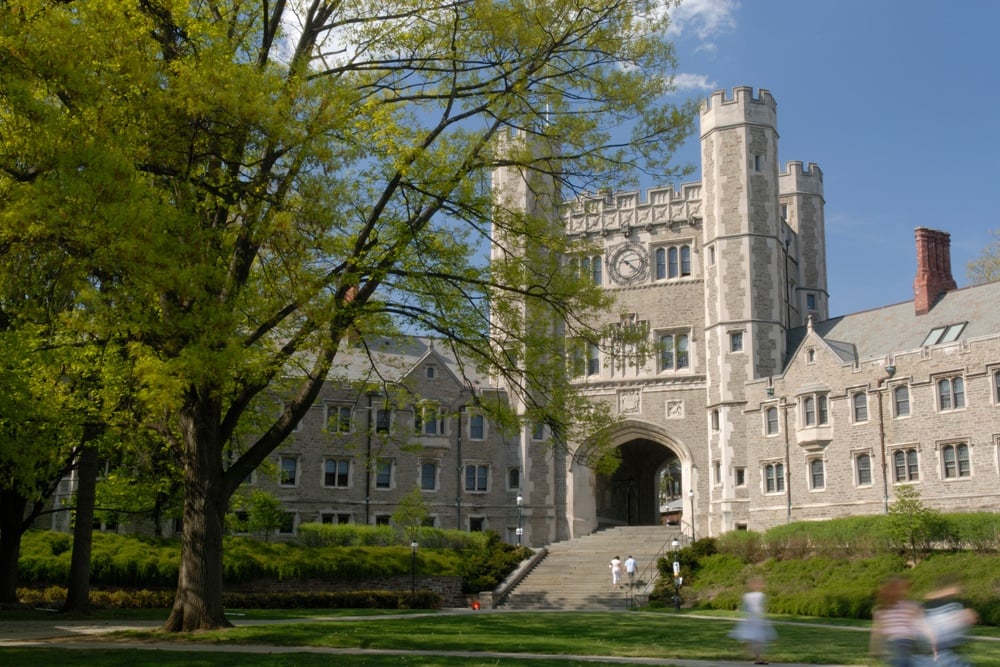Watching the stock market plummet then surge recently brought back the same feeling in my gut when I took over as a first time Dean of Admissions and Financial Aid during the 2008 recession. The stock market’s roller coaster leads to calls for calm and rationality from CEOs and economists—but it leads to angst and nervous moments for parents of college-bound students.
Apple’s CEO Tim Cook met the maelstrom of financial uncertainty with reassurance and positivity. He knows that his company’s performance isn’t about short-term gains and losses. It is about the long game. The same can be said of every family’s investment in higher education.
It is well known that the ultimate American investment is higher education. Numerous studies have shown the earning potential of college graduates vs. high school graduates, and it is without question that higher education is a wondrous long-term investment. Yet, families will fret and wring hands about how to reasonably pay for this golden goose of American prosperity. And whenever the stock market bungee jumps into uncertainty, it pushes families investing in higher education to question the value of their investment.
Is a four-year degree really worth the investment? Absolutely, yes. However, the truth is, American education is costly. Tuition is ever rising at three to five percent annually and the number of merit scholarships is ever dwindling. I have had innumerable conversations with students and parents over the years about the mythological “free ride.” These are rare unless you are a Division I athlete at a major sports school or have something uniquely special that a college wants.
"Is a four-year degree really worth the investment? Absolutely, yes" TWEET THIS
But I am optimistic about the changing face of financial aid because just as athletic and merit scholarships are limited, there are a growing number of institutions investing significantly in need-based financial aid. It all comes down to what is most important to an institution, especially during trying economic times. Students should be our top priority whether the economy is on the rise or the decline. We owe it to the next generation of college-bound students to not only make college accessible from an admissions standpoint, but affordable as well.
BONUS: Learn how one student plans to pay for his college education #CollegeBoundStories
While colleges work on making education affordable, I encourage students and families to get smart and stay smart with their investment. That means different approaches as students move through the various stages of this process. When a child is in elementary school, middle school, and early high school, parents need to save. Invest in a 529 savings plan or a good, old-fashioned savings account or money market. 529 plans are like a 401K for college tuition. They are free from state and federal tax and allow for an incredible investment opportunity to save well in advance to pay for the cost of college.
For rising seniors who are on the precipice of applying to college, I advocate for a “keep it real” approach. Apply to:
- Dream schools
- Safety schools
- And schools that are affordable if all else fails
But don’t be fooled by the price tag. Some of the most expensive private institutions offer the very best financial aid in the country. As financial aid packages roll in, there may be some excellent offers from some of the most expensive schools. And remember, financial aid packages can be reviewed and reconsidered before (and after) a student commits to an institution.
For the current college-bound students and their parents, just take a deep breath. Know that this is a short-term investment and sacrifice with an incredible long-term upside. If circumstances change and a family’s ability to afford tuition drops, colleges are often motivated to meet a family’s financial need in order to retain the student. Financial aid packages are re-calculated every year, and as a student’s ability to pay changes, so too should the package.
Whether there is a recession, correction, bust or boom, students and families need to focus on the long game. The promise of higher education is long-term financial success. Doubling down on smart strategies before, during and after applying to college will help to make this an affordable investment.
"Focus on the long game and make smart choices with your higher education investment" TWEET THIS
Fluctuations in the economy should be viewed as short-term changes and should be met with realism and even some optimism. American education will continue to be the cornerstone of an individual’s financial success and personal happiness. Colleges know that without their students they are just a shell of an Ivory Tower. In the end, students are the blue chip stocks of our future.











